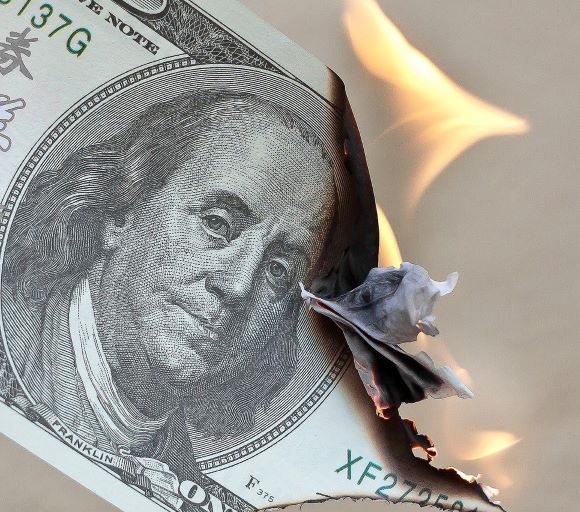Inflation Will Stick Around, But You Can Fight Back
Inflation has been in the news lately, and plenty of other places, too. Maybe you’ve seen it at the gas pump. Or at the grocery store when you were buying meat, or eggs. Or – big shudder – at the car rental counter.
Prices Are on the Rise – Why?
Short answer: We’re seeing the first major inflation in more than 30 years because of the COVID-19 pandemic. Economists call the series of transportation links and transactions that get goods from producers to consumers the supply chain. And the pandemic has seriously disrupted the supply chain, which was stretched thin even before the virus walloped the U.S. (and the rest of the globe). Container ships full of goods are stuck waiting offshore, for example, because a lack of transport to move out the containers that have already arrived.
And when you mix big consumer demand for goods with a limited supply of those goods, you get inflation. As of this writing, that has translated into a 5.4-percent increase in prices over last year. Some items – like gas (42-percent increase), used cars (24 percent), and hotel room rates (18 percent), just to name just a few – cost way more than they did last year. Even if the price of something hasn’t gone up, you may be getting less of it, or a lower level of service. Pundits have dubbed this “skimpflation,” as businesses try to cut costs.
How Long Will Inflation Last?
Inflation looks like it’s going to last a while – longer than economists anticipated a few months ago. One reliable indicator of inflation is the bond market, and it has been reacting like prices are going to keep rising. Investors tend to dump their bonds for investments with a bigger interest rate when they think inflation is here to stay. The housing market – both home purchases and rentals – has been tight for quite a while and shelter costs keep increasing, too.
When people see prices rising (but not their income) they rush to buy before something they want or need costs even more. That increased demand then pushes prices up even more, and the spiral continues. And the biggest underlying cause of this inflation – the pandemic – doesn’t look like it’s going to disappear soon.
Right now, economists look for inflation to last well into 2022. At the same time, they are optimistic the rate will slow down to 3 percent next year instead of the current 5.4 percent.
What to Do
Here are a few ways you can fight against the effects of inflation:
Buy used instead of new. The scarcity of new cars has sent used car prices way up, but they’re still cheaper than the latest models. There are other used equipment bargains out there you can search for, too. You can also repair what you already have instead of buying a replacement. And guess what – bored folks stuck at home went on mad de-cluttering binges during the lockdown. That means a bonanza of thrift store finds.
Buy generic. Besides breakfast cereal and aspirin, this works for office supplies, too.
Get rid of high- or variable-interest rate debt. If you have debt on a variable-rate credit card, a fixed rate loan (or a transfer to 0-percent-rate card) will probably save you money.
Investment strategies. If bonds are going down, obviously you’ll want to steer clear of them. But there are other investment opportunities that typically do well during times of inflation. High-growth stocks are one bet (and remember, just about every high-return investment is a bet, not guaranteed). Commodities – things like crude oil, food crops and animals (the very things whose prices are rising) – are another option. Gold has been a traditional hedge against inflation; the value usually rises along with consumer prices. And many are looking at Bitcoin as a new, modern-day equivalent.
Links
Check out this article for ways to save at the grocery store.
Kiplinger’s writes about how inflation can affect your retirement.
Lastly, you can learn more about our services here!


Recent Comments